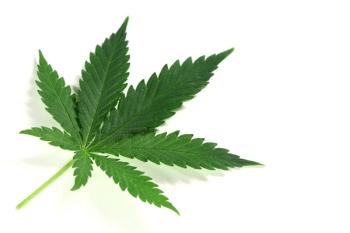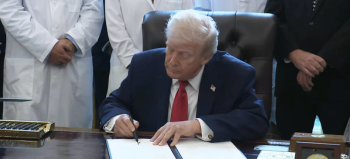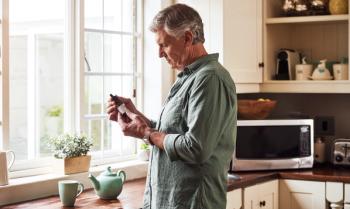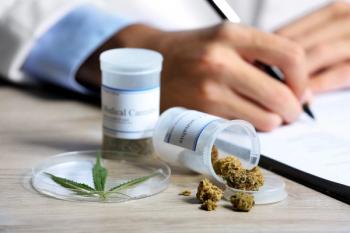
Cannabis Science and Technology
- Cannabis Patient Care
- Volume 1
- Issue 1
A Caregiver’s Perspective
Jamie Pascua, a Veterans Affairs caregiver, shares her unique perspective on medical cannabis and her role caring for her disabled veteran spouse.
Jamie Pascua, VA Caregiver, understands the impact of PTSD from her experience as a caregiver for her disabled veteran spouse. Here she shares her unique perspective.
After honorably serving our country, many veterans face another battle upon returning home: post-traumatic stress disorder (PTSD). Mental health can sometimes be overlooked or forgotten, but military personnel are very familiar with PTSD. This disorder echoes the trauma of war and affects not only the individual, but also plays a role with their loved ones as well. Jamie Pascua, a United States Department of Veterans Affairs (VA) caregiver, understands the impacts PTSD has on veterans through her personal experience with her own husband. Pascua’s spouse is a disabled veteran. Pascua's husband served in the The United States Marine Corps for 8 years and was deployed to Iraq four times. Not only is she the caregiver for her husband, but Pascua is also a peer support mentor. The peer support program provides an opportunity for caregivers like Pascua to receive guidance and a place to share their experiences, wisdom, skills, and passion with other caregivers.
Caregivers provide a crucial role of emotional support for those suffering from PTSD and other issues (1). Veteran’s with a 100% service-connected disability rating in need of assistance with daily life can apply for the aid of a caregiver. This job can be done by a spouse, child, parent, extended family member, or someone who lives full-time with the veteran.
The Road to Alternative Treatment
PTSD can often be treated using prescription medication as Pascua discussed with her husband’s case. “When my husband began treatment for his PTSD he was prescribed a lot of different medications; mood stabilizers, anti-psychotics, anti-anxiety . . . the list went on and on,” said Pascua. “I watched him transform from a sharp witted, hilarious, caring individual to a zombie. He was unable to focus or care about anything.”
Pascua explained that her husband didn’t like the way he felt while fully medicated, so he decided to wean himself off and seek alternative treatments. “We tried cannabis on an ‘as needed’ basis and found he slept better and was able to regain his original personality,” said Pascua.
Pascua also explained that she had hippie parents and was a recreational cannabis user herself prior to getting married. She knew that given her husband's personality type, cannabis would be effective for him.
With the stigma surrounding cannabis use in general, many patients resort to conventional treatment options first or may not even be aware that the medical cannabis could be an option. By trying medical cannabis, Pascua’s husband was able to replace his anxiety medications and use it as sleep aid leading him to suffer from fewer night terrors and wake up fully rested, which also has given her peace of mind.
“I can only speak from my own personal experiences, but I think that cannabis has helped my husband far more than the pharmaceutical treatments he was prescribed,” she said. “He is in charge of his own dosage and can use it as needed, as opposed to a strict regimen that does not take changing moods into account. He is more like his ‘old self’ when using cannabis and it’s wonderful to see.”
Changing Laws and Access
With the rising popularity of cannabis, lawmakers are pushing for more regulation and open-access for patients. New legalization and regulations are enabling cannabis dispensaries to open and better serve their communities, such as the dispensary that recently launched in Pascua’s area. She admits that she never thought she would see such laws about medical cannabis pass in her lifetime. The availability of local access makes it convenient for her husband to receive the medical cannabis products that help his PTSD. “When my husband is using medical cannabis, I find him easier to relate to,” said Pascua. “He laughs more and is able to release the stress I know he carries every day.”
Even with increased availability to obtain medical cannabis, more still needs to be done to increase the eligibility and awareness so that others can benefit from this medicinal plant. The future of cannabis is unknown, but Pascua said that she hopes to see the VA sponsor a medical cannabis program in the future—one that targets cannabis not just as a replacement for pharmaceutical cocktails but also as a therapy tool.
“Even growing your own cannabis can be therapeutic, taking care of the plants is very relaxing and that feeling of pride, and knowing that they (the veterans) are in full control of their own medication would be so empowering,” said Pascua. “I hope that VA doctors are someday able to advise their patients in the use of medical cannabis for their ailments.”
Advice and Resources
Every day for Pascua looks different, but she strives for a routine, and had a pretty good one going until COVID-19 hit. Her biggest piece of advice to people that are new caregivers is not to give up. "It will be challenging at times, but the caregiver program is here to help," she said.
There are many resources out there regarding learning how to become a caregiver. One place to start that Pascua recommended was
Medical cannabis is a growing sector that has the ability to aid many patients in treating their conditions and with its growth there will be constant changes to regulations, expanding the future care of users. It’s important for caregivers to play an active role and stay up to date with available treatment options for their loved ones.
Closing Thoughts
Pascua explained that being able to use medicinal cannabis allowed her husband to have some control over how medicated he was. "He wasn’t locked into a set schedule of drugs that kept him from being his whole self," she said. "I hope other caregivers are able to research medicinal cannabis for themselves, and that their veterans find the same measure of peace that mine did."
Reference
Articles in this issue
about 5 years ago
Cannabis Patient Care: Cannabis Medicine Personalizedabout 5 years ago
The 2019 Veterans Health and Medical Cannabis Studyabout 5 years ago
A Scientific Path to Discover the True Effects of Medical Cannabisabout 5 years ago
Cannabis Activism: The Fight for Veteran Accessabout 5 years ago
A Nurse’s Account of Medical Cannabis Treatmentabout 5 years ago
Cannabis Patient Care November 2020 Volume 1 Issue 1Newsletter
Unlock the latest breakthroughs in cannabis science—subscribe now to get expert insights, research, and industry updates delivered to your inbox.




